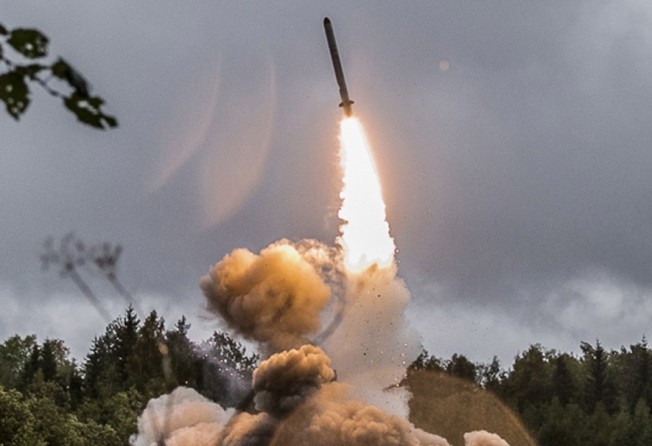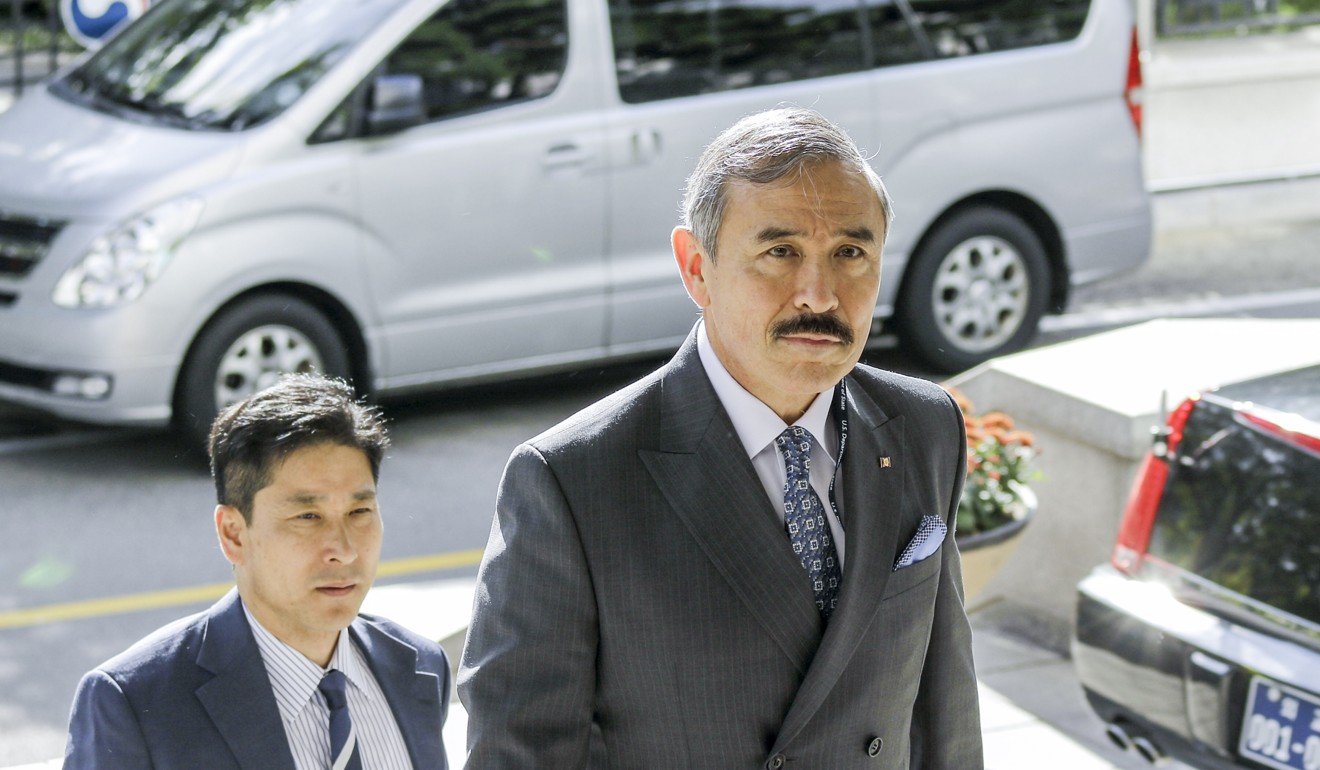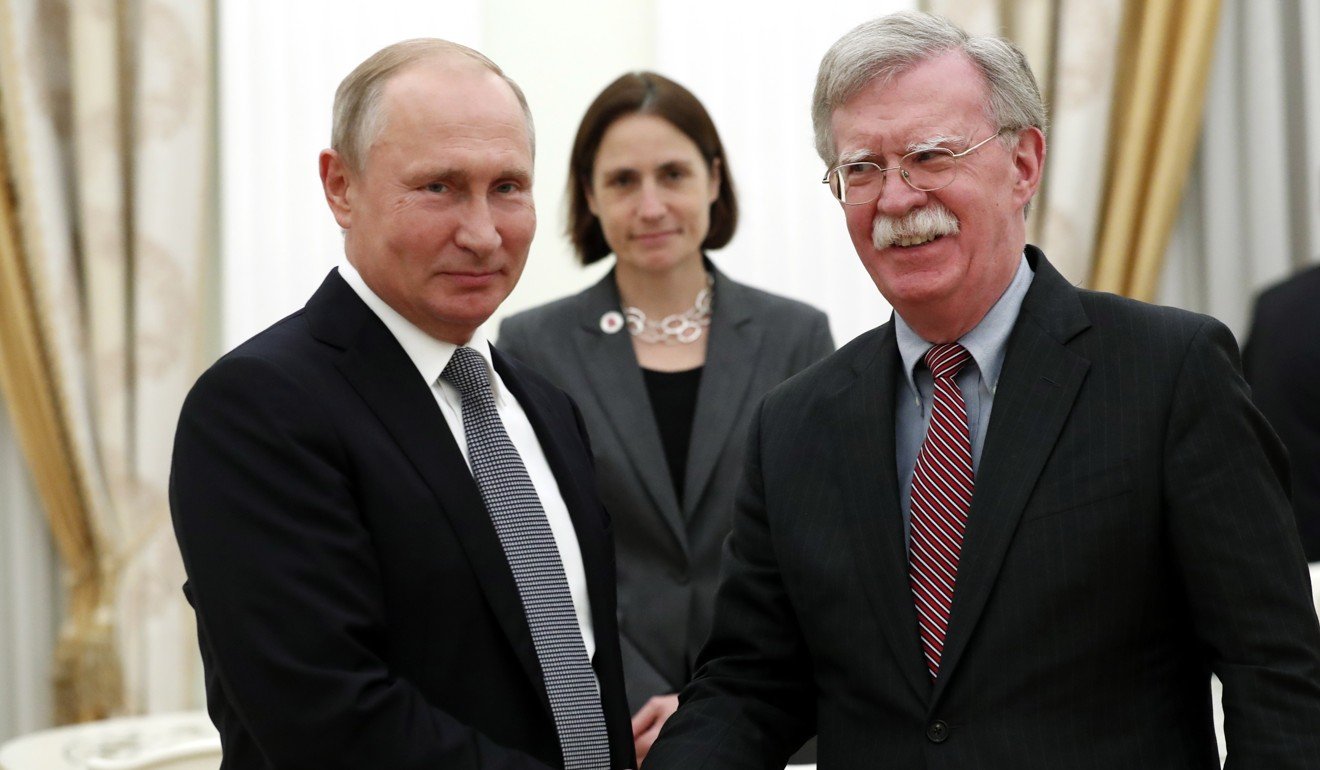Why the cost of Donald Trump’s plan to scrap nuclear arms control treaty may not be worth the gains in Asia
- Ankit Panda writes that a US pull-out from 1987 treaty would expose Europe to a threat from Russian cruise missiles
- The move may be aimed at countering China, but the benefits of doing it this way are debatable

The sole remaining cold war arms control treaty between the United States and Russia may be on its last legs. US President Donald Trump, egged on by his arms control-averse adviser on national security affairs, John Bolton, has said Washington will leave the Intermediate-Range Nuclear Forces Treaty.
Signed in 1987, the treaty was the first to result in the destruction of an entire class of nuclear and conventional weaponry.
It barred both the US and the Soviet Union from developing, possessing, testing or deploying ground-launched ballistic and cruise missiles with a range of 500 to 5,500km (310 to 3,417 miles). Air- and sea-launched missiles – both nuclear and conventional – were not included.
At the time, the treaty helped defuse rising tensions in Europe, where US Pershing-II and Gryphon missiles were pitted against Soviet SS-20 ballistic missiles, raising the prospect of a damaging exchange that could have easily spiralled into an all-out nuclear war.
The confidence forged between former US president Ronald Reagan and Mikhail Gorbachev, the last Soviet leader, helped build trust between the superpowers in the cold war’s final years.
In 2014, the Obama administration raised with Russia a serious allegation about noncompliance with the treaty.
According to the US, Russia developed and deployed a ground-launched cruise missile known as the SSC-8 Novator with a range within the INF pact’s proscribed limits. Russia has denied that it has violated the treaty and instead has alleged that the US has committed its own violations.
The Trump administration’s announcement that it will withdraw from INF is partly a result of new geopolitical realities and a result of the administration’s general aversion to any agreements, treaties and institutions that can be perceived to bind the US’s strategic range of motion.
One of the changed realities is the nature of the US’s relationship with China, which, as US vice-president Mike Pence has put it, is one of competition.

US officials, such as Admiral Harry Harris, the former head of Pacific Command, have noted that China’s People’s Liberation Army Rocket Force – formerly the Second Artillery Corps – is overwhelmingly comprised of ballistic and cruise missile systems that the INF treaty prohibits the US from deploying.
As the US operationalises a set of defensive policies, coordinated with its allies and partners, several analysts have called for its withdrawal from INF on the grounds that the US would be served well by developing a new ground-launched cruise missile (GLCM) to deter China and complicate Chinese military planning.
The US wasn’t the first to raise concerns about China within the confines of the INF accord. In fact, in the mid-2000s, it was Russia that had expressed concern about the development of missiles in the INF-proscribed range by countries including China, India, Pakistan and Iran, seeing these newer missile powers as a threat to its interests in Eurasia.
The US debate on the merits of INF withdrawal in Asia is just beginning, but already serious challenges are apparent.
The treaty’s end would free up options for the US, but Russia would have all the more to gain, without having to face consequences for developing the SSC-8.
First, outside Guam, a US territory, the US is seriously limited in the territories available to host a new prospective GLCM. Japan – perhaps the best prospect for such a deployment – has signalled that it would rather see Washington remain in the treaty.
Of course, geopolitical circumstances could change drastically should China’s current course of assertive behaviour continue. US allies including Japan, South Korea, the Philippines and Australia may come around to see Beijing as a threat to stability great enough that they would be willing to incur the political costs of hosting US missiles.
Separately, the US already has the option of deploying air- and sea-based systems to deter China.
While these systems have higher deployment costs than permanently stationed land-based GLCMs, they exist and do not require an all-new development and procurement effort. Separately, INF would not bind US allies and partners from developing their own intermediate-range missiles, should they decide to do that.
What isn’t apparent, however, is that the costs of INF’s demise in Europe will be worth the gains in Asia. Trump and Bolton would be correct in arguing that the treaty’s end would free up new options for the US; but it would be Russia that would have all the more to gain in the short-term, without ever facing any consequences for its violation of the treaty by developing the SSC-8.

For the moment too, it appears less clear that Trump’s declamation on INF will stand. Senior US military officials have said that the withdrawal measures have not yet been activated and the Special Verification Commission – the treaty-codified body to discuss compliance issues – will meet this December as planned.
Time will tell if the US will push ahead with withdrawing from INF. If it does, that would be a shame, yielding Russia a free hand to deploy the SSC-8 while harming European security, all in exchange for benefits in Asia that, while apparent, won’t be worth the costs in Europe.
Ankit Panda is a senior editor at the Diplomat